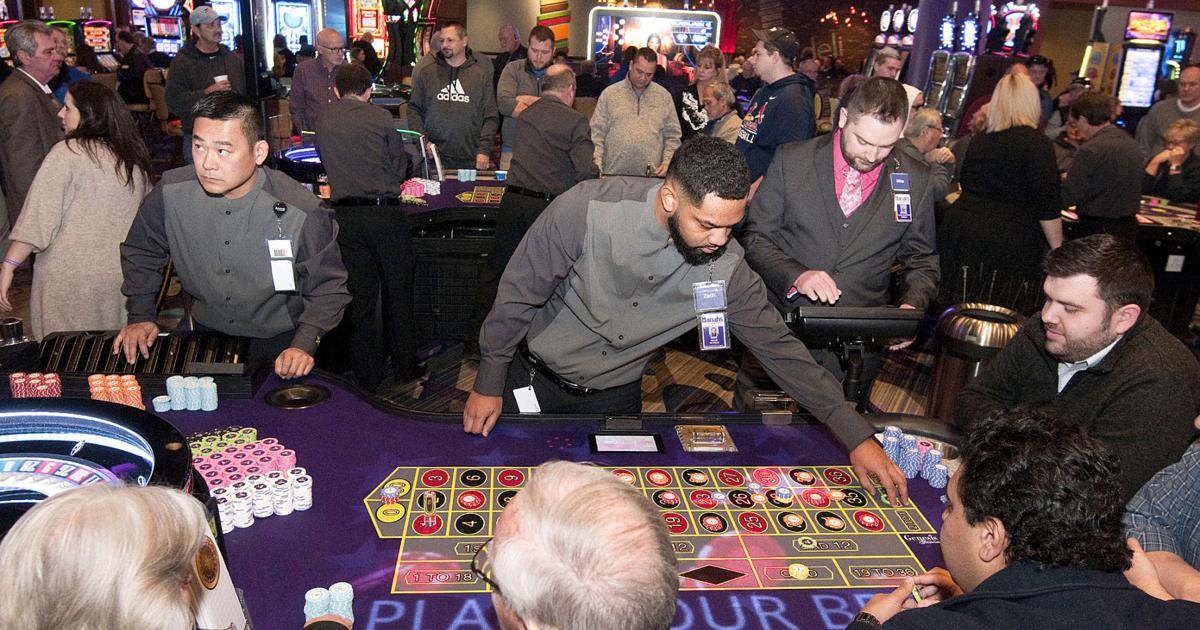From the neon lights of Las Vegas to the casinos of Macau, for decades now, gambling has been an integral part of any discussion about economic transformation. Casinos have had a profound effect on economies around the world and continue to be at the forefront when it comes to fueling economic growth.
With a detailed analysis of case studies from various jurisdictions, this article provides readers with an insightful take on how casinos can be used as instruments for positive change in today’s society.
The Impact of Casinos on Local Economies

The impact of casinos on local economies is far-reaching and can be both positive and negative. While they may bring increased revenue to the area, they can also cause issues such as overcrowding, traffic congestion, and crime.
Additionally, these establishments often require large amounts of capital to build and operate which means there is a need for investment from private or public sources. Furthermore, larger casinos have more employees than their smaller counterparts which creates challenges with labor costs and turnover.
Despite the potential drawbacks that come with expanding casino operations in an area it is important to consider all possible outcomes before taking this endeavor – weighing carefully how any potential benefits will be balanced against existing infrastructure resources available within the community for public safety measures like police officers or emergency services personnel if needed during a crisis situation created by too many people visiting at once or shifts in criminal activity around certain locations within city limits.
Ultimately when done responsibly gambling institutions can contribute significantly to economic growth through job creation, taxes on revenue from gaming activities, and tourism spending per capita – thus creating new opportunities in business beyond entertainment alone!
Understanding the Social Effects of Casino Expansion

Casinos have been a part of the American landscape for decades, but their expansion has had far-reaching consequences. As casino gambling becomes more accessible and widespread, it can bring both positive and negative impacts to communities.
Understanding these social effects can help local governments make better decisions about where and when to expand gaming operations.
On one hand, casinos offer a source of entertainment that boosts the economy by bringing in tourists who spend money on lodging, dining, transportation, merchandise and other services.
Casino jobs also provide opportunities for employment in areas that may be economically depressed or otherwise lacking work options. On the other hand, an influx of new visitors can cause overcrowding issues as well as increased traffic congestion in surrounding neighborhoods.
The presence of casinos can also lead to higher crime rates due to theft or illegal activities such as money laundering or drug sales associated with some establishments. When considering expanding casino operations into an area it is important to consider all possible outcomes from both economic and social perspectives before embarking on this endeavor.
It is essential that local government officials weigh carefully how any potential benefits will be balanced against existing infrastructure resources available within the community for public safety measures like police officers or emergency services personnel if needed during a crisis situation created by too many people visiting at once or shifts in criminal activity around certain locations within the city limits .
Exploring the Benefits of High-Stakes Gaming for Communities

The exploration of high-stakes gaming as a means of economic transformation is an important one. Casinos have long provided entertainment and opportunity to those willing to take the risk, and they can also serve as catalysts for positive change in communities.
By providing employment opportunities, increased tax revenues, and investment capital, casinos can be part of a larger effort to boost local economies. But there are also potential drawbacks that must be considered when exploring the benefits of high-stakes gaming.
From crime rates to money laundering concerns, any decision about casino expansion should consider its impact on a community’s safety and financial standing.
Additionally, some argue that gambling addiction increases with expanding access; others worry about social costs associated with problem gambling or reduced productivity among employees spending time at casinos instead of working.
Despite these possible issues, it is undeniable that many people benefit from having access to high-stakes gaming options close to their homes or businesses: responsible gamblers who enjoy the experience; entrepreneurs who invest in new ventures; and local governments looking for ways to raise additional funds without raising taxes on citizens directly.
As such careful consideration must be given before allowing any form of expanded gaming within a community—but there is no denying that done correctly casinos can offer substantial economic gains for individuals living nearby them.
Analyzing the Challenges Presented by Large-Scale Casinos
Large-scale casinos present a unique set of challenges for economic transformation. For one, they require large amounts of capital to build and operate, meaning that there is typically a need for investment from private or public sources. Additionally, larger casinos can have more employees than their smaller counterparts, which can create issues with labor costs and turnover.
Moreover, the sheer scale of such establishments requires careful monitoring of gaming regulations and customer privacy protocols. With these obstacles in mind, it is important to consider how best to manage the potential economic benefits associated with large-scale casino operations while avoiding pitfalls like overstaffing or regulatory violations.
Ultimately, taking proactive measures to successfully navigate these challenges can be integral in ensuring long-term success for any casino enterprise looking to make an impact on its local economy.

Conclusion
The Prive City Casino is a shining example of how casinos can fuel economic transformation. Not only does it provide employment opportunities and generate revenue for the city, but it also has had a significant impact on the local economy by spurring the development of businesses that cater to casino-goers.
With its large investment in infrastructure and ongoing support of local initiatives, Prive City Casino has proven that gambling establishments can be powerful engines for positive change in their communities.
The success at Prive City Casino demonstrates how investing in such projects can bring about meaningful progress and prosperity to any region.







